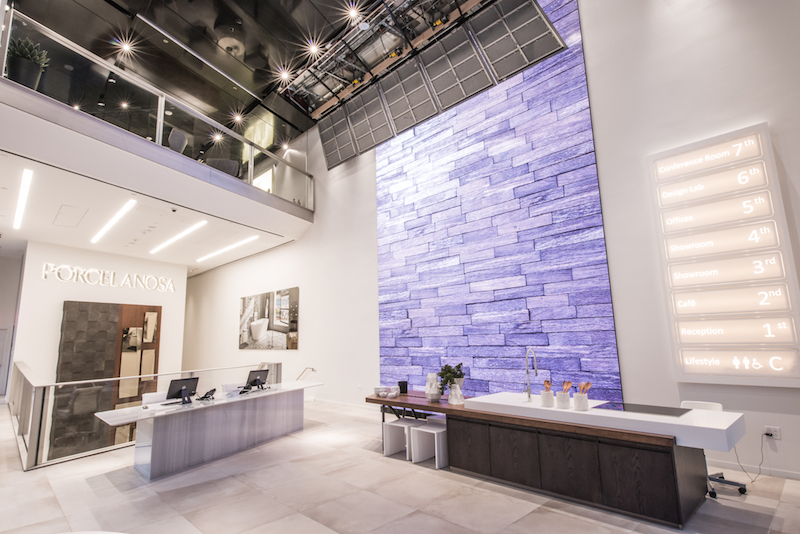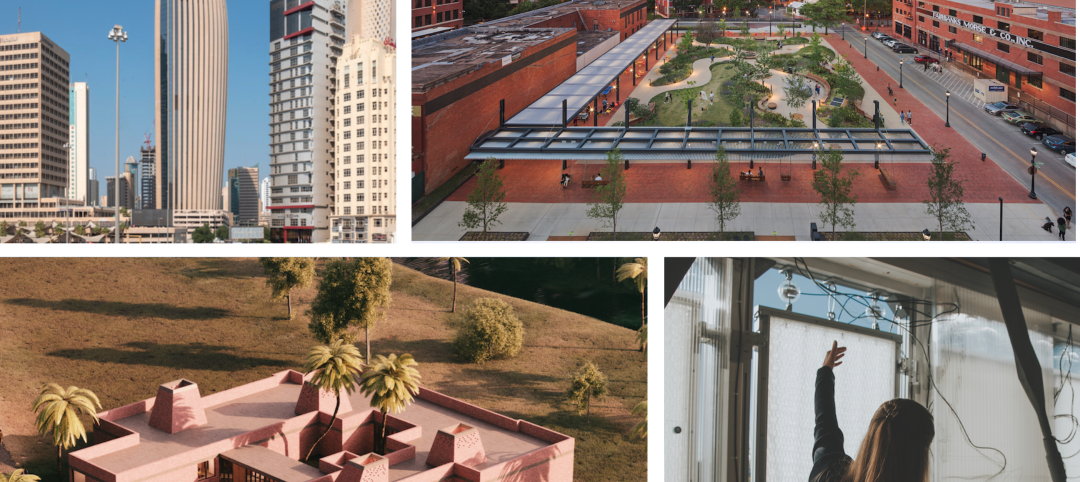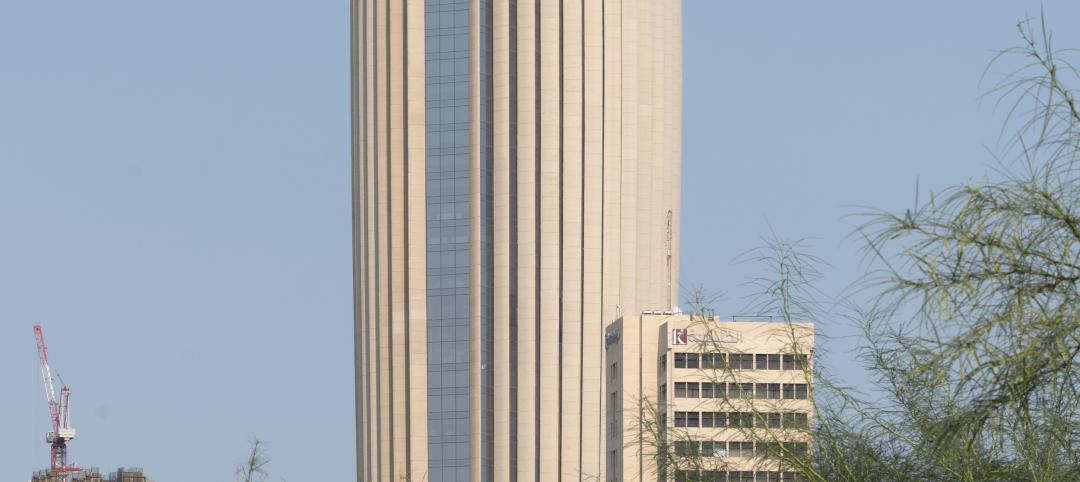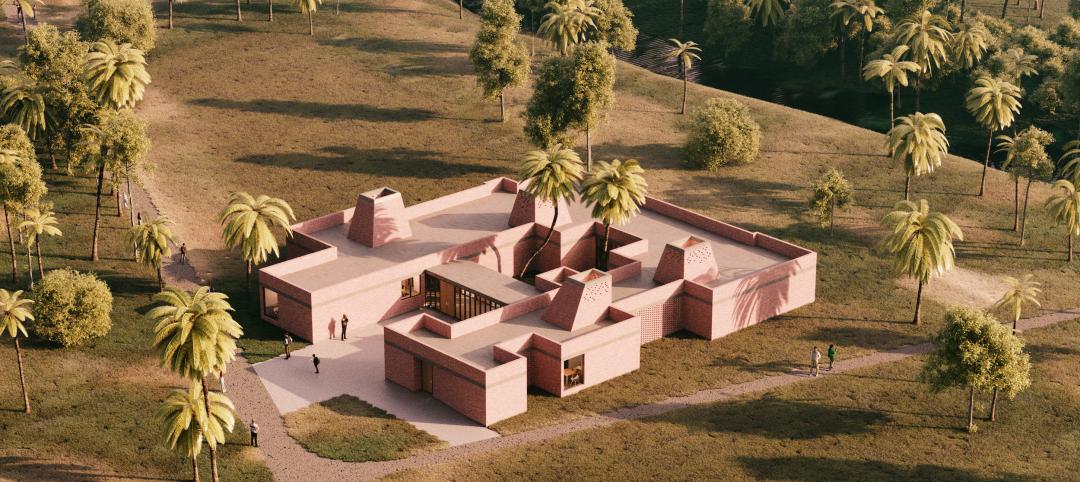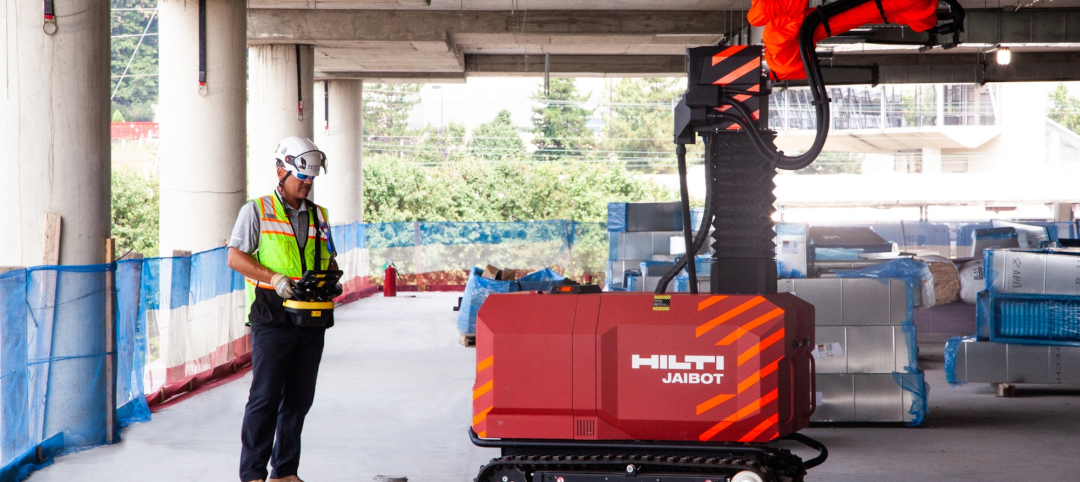Porcelanosa, a maker and distributor of luxury tile, kitchen, and bath products, recently completed the conversion of the former Commodore Criterion building in New York into an 18,000-sf, seven-floor showroom that opened in September.
The showroom, Porcelanosa’s 25th in the U.S., displays more than 1,000 products, notably those made from Krion, Porcelanosa’s solid-surface product for countertops, vanities, and furniture. But even Porcelanosa could not have anticipated that Krion would also serve as panels of a retractable ceiling over the showroom’s main entrance.
One of Porcelanosa’s design demands was no dropped ceilings. So how would wiring and systems that run behind the ceiling be accessible? “There’s a lot of stuff back there,” says Joe Patrovich, Director of Operations for Modworxx, an architectural millwork supplier.
To meet the client’s aesthetic requirement, Modworxx devised a mechanical system with motor-operated pulleys that raise and lower rectangular and triangular Krion panels set on hinges along the ceiling’s perimeter. When those panels open, other panels in the center section of the ceiling slide horizontally on roller tracks into those spaces.
All told, 39 panels cover 1,300 sf of ceiling space. Key switches at the showroom’s mezzanine level control each panel’s movement. Patrovich says the system cost about $350,000.
Santiago Manent, Sales and Marketing Director for Porcelanosa USA, notes the ceiling surface reflects a floor-to-ceiling 26x16-foot LED screen that’s visible from the street, making the screen look double its size.
Foster + Partners was the showroom designer. Americon was the GC.
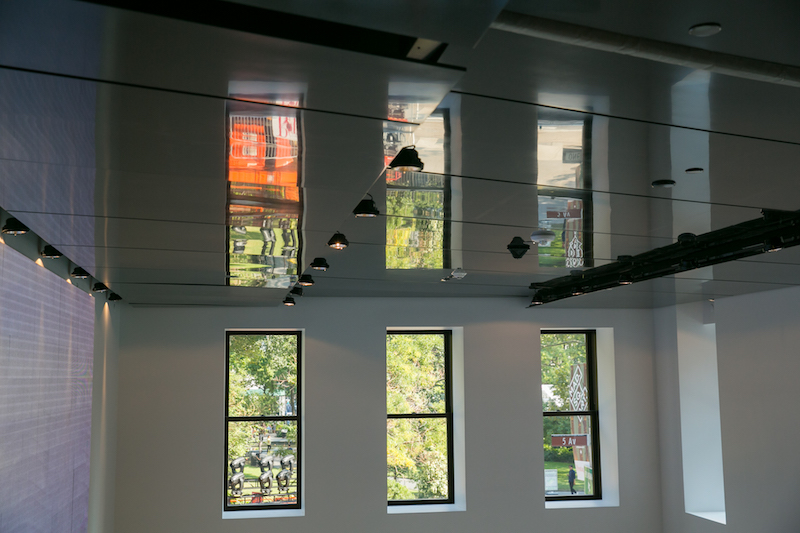 Photo: MODWORXX
Photo: MODWORXX
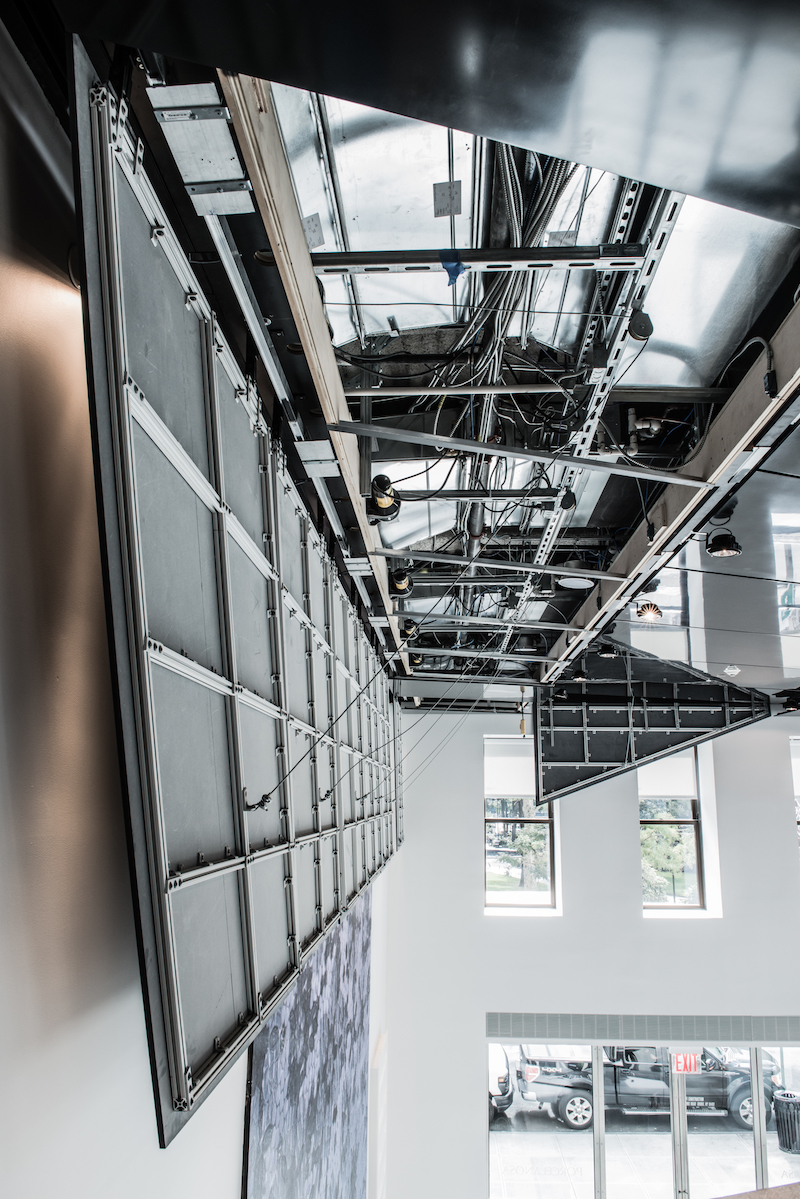 Photo: MODWORXX
Photo: MODWORXX
Related Stories
Design Innovation Report | Apr 27, 2023
BD+C's 2023 Design Innovation Report
Building Design+Construction’s Design Innovation Report presents projects, spaces, and initiatives—and the AEC professionals behind them—that push the boundaries of building design. This year, we feature four novel projects and one building science innovation.
Design Innovation Report | Apr 19, 2023
Reinforced concrete walls and fins stiffen and shade the National Bank of Kuwait skyscraper
When the National Bank of Kuwait first conceived its new headquarters more than a decade ago, it wanted to make a statement about passive design with a soaring tower that could withstand the extreme heat of Kuwait City, the country’s desert capital.
Design Innovation Report | Apr 19, 2023
HDR uses artificial intelligence tools to help design a vital health clinic in India
Architects from HDR worked pro bono with iKure, a technology-centric healthcare provider, to build a healthcare clinic in rural India.
3D Printing | Apr 11, 2023
University of Michigan’s DART Laboratory unveils Shell Wall—a concrete wall that’s lightweight and freeform 3D printed
The University of Michigan’s DART Laboratory has unveiled a new product called Shell Wall—which the organization describes as the first lightweight, freeform 3D printed and structurally reinforced concrete wall. The innovative product leverages DART Laboratory’s research and development on the use of 3D-printing technology to build structures that require less concrete.
Cladding and Facade Systems | Apr 5, 2023
Façade innovation: University of Stuttgart tests a ‘saturated building skin’ for lessening heat islands
HydroSKIN is a façade made with textiles that stores rainwater and uses it later to cool hot building exteriors. The façade innovation consists of an external, multilayered 3D textile that acts as a water collector and evaporator.
Transportation & Parking Facilities | Mar 23, 2023
Amsterdam debuts underwater bicycle parking facility that can accommodate over 4,000 bikes
In February, Amsterdam saw the opening of a new underwater bicycle parking facility. Located in the heart of the city—next to Amsterdam Central Station and under the river IJ (Amsterdam’s waterfront)—the facility, dubbed IJboulevard, has parking spots for over 4,000 bicycles, freeing up space on the street.
Concrete | Jan 24, 2023
Researchers investigate ancient Roman concrete to make durable, lower carbon mortar
Researchers have turned to an ancient Roman concrete recipe to develop more durable concrete that lasts for centuries and can potentially reduce the carbon impact of the built environment.
Sponsored | Resiliency | Dec 14, 2022
Flood protection: What building owners need to know to protect their properties
This course from Walter P Moore examines numerous flood protection approaches and building owner needs before delving into the flood protection process. Determining the flood resilience of a property can provide a good understanding of risk associated costs.
Giants 400 | Nov 14, 2022
4 emerging trends from BD+C's 2022 Giants 400 Report
Regenerative design, cognitive health, and jobsite robotics highlight the top trends from the 519 design and construction firms that participated in BD+C's 2022 Giants 400 Report.
AEC Tech | Apr 13, 2022
A robot automates elevator installation
Schindler—which manufactures and installs elevators, escalators, and moving walkways—has created a robot called R.I.S.E. (robotic installation system for elevators) to help install lifts in high-rise buildings.


